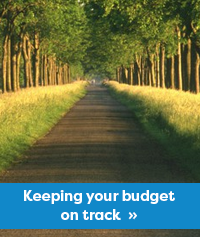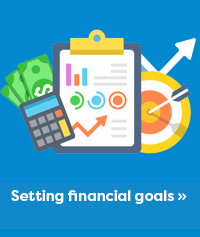Budgeting for Real Life

Are you following a budget? Does it account for all your spending habits and unexpected expenses? Many people budget by splitting their expected income and expenses into categories, even creating visuals like a pie chart to represent the different slices of their budget. Yet when we budget for the expected, we don’t necessarily consider the importance of all the little (or not so little) expenses that come up often. By creating a budget that accurately reflects your life, you’re doing yourself a favour and setting your finances up for success.
Here are three tips to help you budget for real life:
Want to talk about budgeting for real life?
Reach out to a member of the CUA team »
Revised Jun 14, 2021
Here are three tips to help you budget for real life:
- Make a budget based on your goals – A budget is an important part of your financial plan. If you budget just to pay the bills, it may be time to revaluate your approach. For example, if you’re interested in buying a home in the next five years but aren’t saving regularly, a down payment will feel like an impossible accomplishment. Throw your bill-paying budget out and start again by deciding where you want to be in 3, 5 and 10 years. From there, build a plan that allows you to do more than just pay the bills. Not sure where to start? Connect with a Financial Advisor »
- Make (or break) habits – To create an effective budget, take the time to see where you’re spending your money. If you’re honest about your spending habits and places you may be overspending, you could find opportunities to save that you didn’t know you had. For example, buying one slice of pizza for lunch on Fridays instead of take out lunch each day could be the difference between whether or not you can contribute $25 into an emergency fund each week. If you’re someone who likes to make spontaneous purchases, adding a miscellaneous spending line in your budget can help you indulge while being more conscious of your spending.
- Make yourself happy – The purpose of budgeting isn’t to cut out all spending and live as frugally as possible. Set yourself up for success by finding room in your budget for things that make you the happiest. If you don’t have the room in your budget for these things, see if it’s possible to switch plans or providers for expensive services. For more tips to keep your costs low, read this article »
Want to talk about budgeting for real life?
Reach out to a member of the CUA team »
Revised Jun 14, 2021






